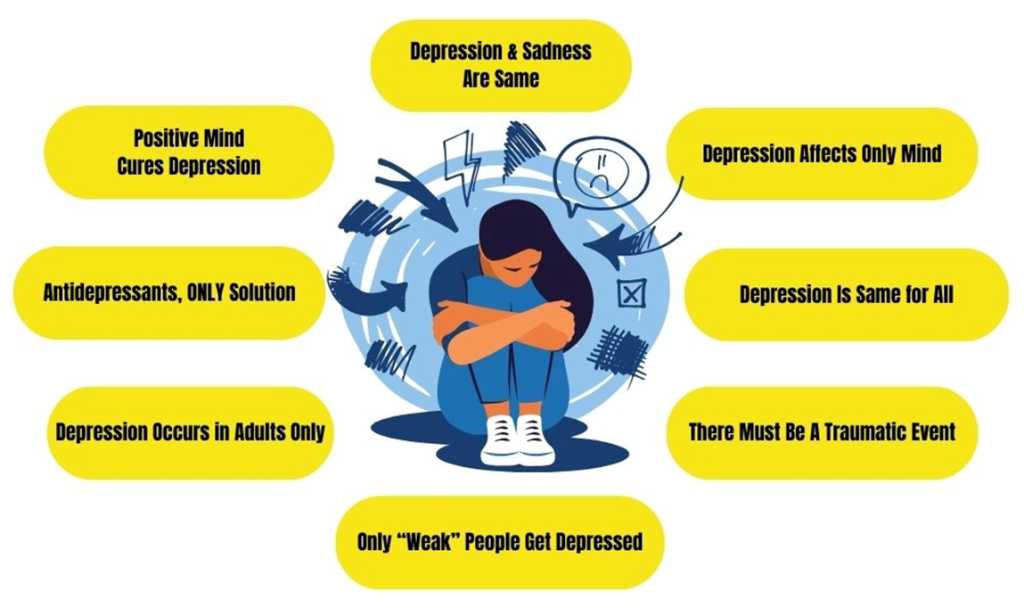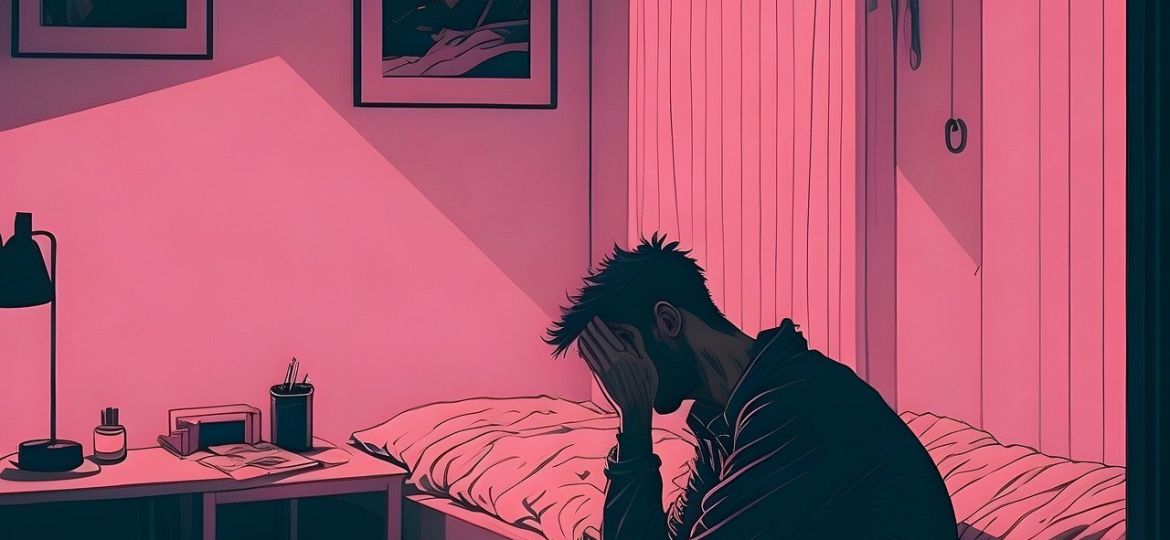
Depression is one of the leading issues for mental healthcare in India, but many people still don’t understand it well. People with depression often face unfair treatment due to these harmful misconceptions. Thus it’s important to learn the actual facts about depression to fight this stigma.
The following are some of the top things people get wrong about depression.
Around 17 million adults in the U.S. had at least one major depressive episode in the past year. It’s a mental health disorder that’s familiar to many. It may be a spouse, friend, coworker, or sibling, but it’s highly likely someone you know has experienced depression at some point.
Despite its prevalence, it remains widely misunderstood. Many misconceptions and myths surround depression that add to the stigma and can prevent people from getting the support they need. To increase awareness and improve the lives of those who suffer, we’re dispelling five common myths about depression.
1.PEOPLE HAVING DEPRESSION CAN JUST 'SNAP OUT OF IT' IF THEY TRY HARD ENOUGH:
The misconception that individuals with depression can simply overcome the disease through willpower or positive thinking overlooks the complex nature of the condition. Multiple factors can impact this disease, and merely telling someone to ‘snap out of it’ ignores the systemic and interpersonal factors that contribute to their condition.
2. PEOPLE WITH ALWAYS ‘FEEL SAD’
One of the most prevalent misconceptions about depression is that it’s simply a prolonged period of sadness. While sadness can sometimes be a symptom of depression, the condition is far more encompassing. Also, it’s worth noting that not everyone who suffers from depression feels sad 24/7.
Depression affects a person’s thoughts, emotions, behaviors, and physical well-being. It can lead to persistent feelings of worthlessness, hopelessness, and a loss of interest or pleasure in once-enjoyed activities. It often comes with physical symptoms like changes in appetite and sleep patterns, difficulty concentrating, and fatigue. Depression is not merely a fleeting emotion. It is a complex mental health disorder that lingers and significantly impacts your quality of life.
3.DEPRESSION IS A ‘SIGN OF WEAKNESS’
Another harmful misconception is that people with depression are weak. This myth is very toxic! In reality, depression does not discriminate based on strength or character. It can affect anyone, regardless of their resilience.
You wouldn’t ignore a heart defect, diabetes, or other medical conditions, and depression should be treated equally! It’s a medical condition, often with underlying genetic, biochemical, and environmental factors. It’s essential to recognize that seeking help and treatment for depression is an act of courage and strength, not weakness.
4.YOU CAN JUST “SNAP OUT OF IT”
Telling someone with depression to “snap out of it” is not only unhelpful but can also be damaging. It’s a complex medical condition involving biological, psychological, and social factors that impact how someone feels.
As we mentioned before, depression is not a matter of willpower. Asking someone to shake off their depression is like asking someone with a broken leg to start running. Compassion, support, and understanding (along with professional treatment) are far more effective approaches for helping someone with depression.
5.MEDICATION IS THE ONLY SOLUTION
False. Medication is not the sole choice for recovery from depression, even though it can be a crucial part of treatment. Depression and other mental health conditions don’t have a single, universally effective treatment. Numerous aspects should be taken into account while customising each treatment.
It’s also important to remember that there are just as many “non-antidepressant” medications available to treat bipolar disorder and depression as there are antidepressant ones. A balanced diet, consistent exercise, and stress reduction are all important lifestyle choices that help reduce symptoms. Seeking guidance from a mental health specialist is crucial in identifying the most effective alleviation therapy regimen.



